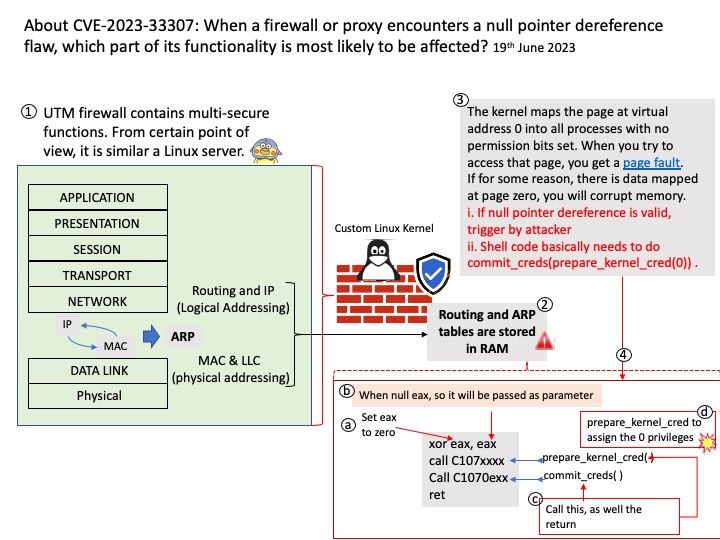
Preface: Linux supports virtual memory, that is, using a disk as an extension of RAM so that the effective size of usable memory grows correspondingly. The kernel will write the contents of a currently unused block of memory to the hard disk so that the memory can be used for another purpose.
Background: Linux supports virtual memory. You can adjust the usage of virtual memory of the Linux kernel.The default on most systems is 60. Setting it to 0 means that Linux won’t swap.
Example: use the sysctl command: sudo sysctl vm[.]swappiness=40.
To change it permanently, edit the /etc/sysctl[.]conf file as root and place the line, “vm[.]swappiness=[swappiness number]”, where “[swappiness number]” is the swappiness number you want.
Ref: Routing and ARP tables are stored in RAM.
Vulnerability details: FortiOS & FortiProxy: authenticated user null pointer dereference in SSL-VPN.
A null pointer dereference in Fortinet FortiOS before 7.2.5 and before 7.0.11, FortiProxy before 7.2.3 and before 7.0.9 allows attacker to denial of sslvpn service via specifically crafted request in network parameter.
Official details: For details, please refer to link – https://nvd.nist.gov/vuln/detail/CVE-2023-33307